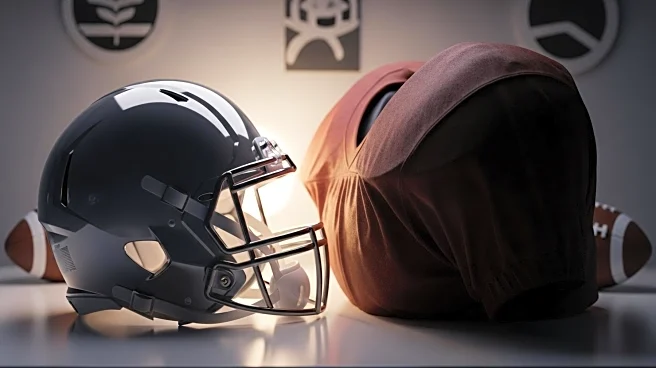What's Happening?
Kyler Murray, the quarterback for the Arizona Cardinals, recently issued an apology after facing public backlash for wearing a Michael Vick jersey in photos with his dogs. Murray clarified that he does not condone animal cruelty or dog fighting, emphasizing his admiration for Vick as a player during his youth. The controversy arose due to Vick's past involvement in a dog fighting ring, which led to his conviction and imprisonment. Murray expressed regret for any offense caused by the photos and stated that his dogs are treated well, aiming to distance himself from any association with animal cruelty.
Why It's Important?
The incident highlights the sensitivity surrounding public figures and their endorsements or associations, especially when linked to controversial figures. Murray's apology underscores the importance of athletes being mindful of their public image and the potential implications of their actions. This situation serves as a reminder of the lasting impact of past controversies on public perception and the need for celebrities to navigate their personal expressions carefully. The backlash also reflects societal attitudes towards animal rights and the ongoing scrutiny of public figures in relation to ethical issues.
What's Next?
Murray's apology may lead to further discussions within the sports community about the responsibilities of athletes as role models. It could prompt other athletes to be more cautious about their public endorsements and associations. The Cardinals and Murray might engage in community outreach or initiatives to promote animal welfare as a way to mitigate the negative impact of the incident. Additionally, this could influence how sports teams manage public relations and the personal conduct of their players.
Beyond the Headlines
The incident raises questions about the intersection of sports, celebrity culture, and ethical considerations. It highlights the challenges athletes face in balancing personal admiration for sports figures with the broader societal implications of their actions. This situation may contribute to ongoing debates about the role of athletes in advocating for social issues and the expectations placed on them by the public.









